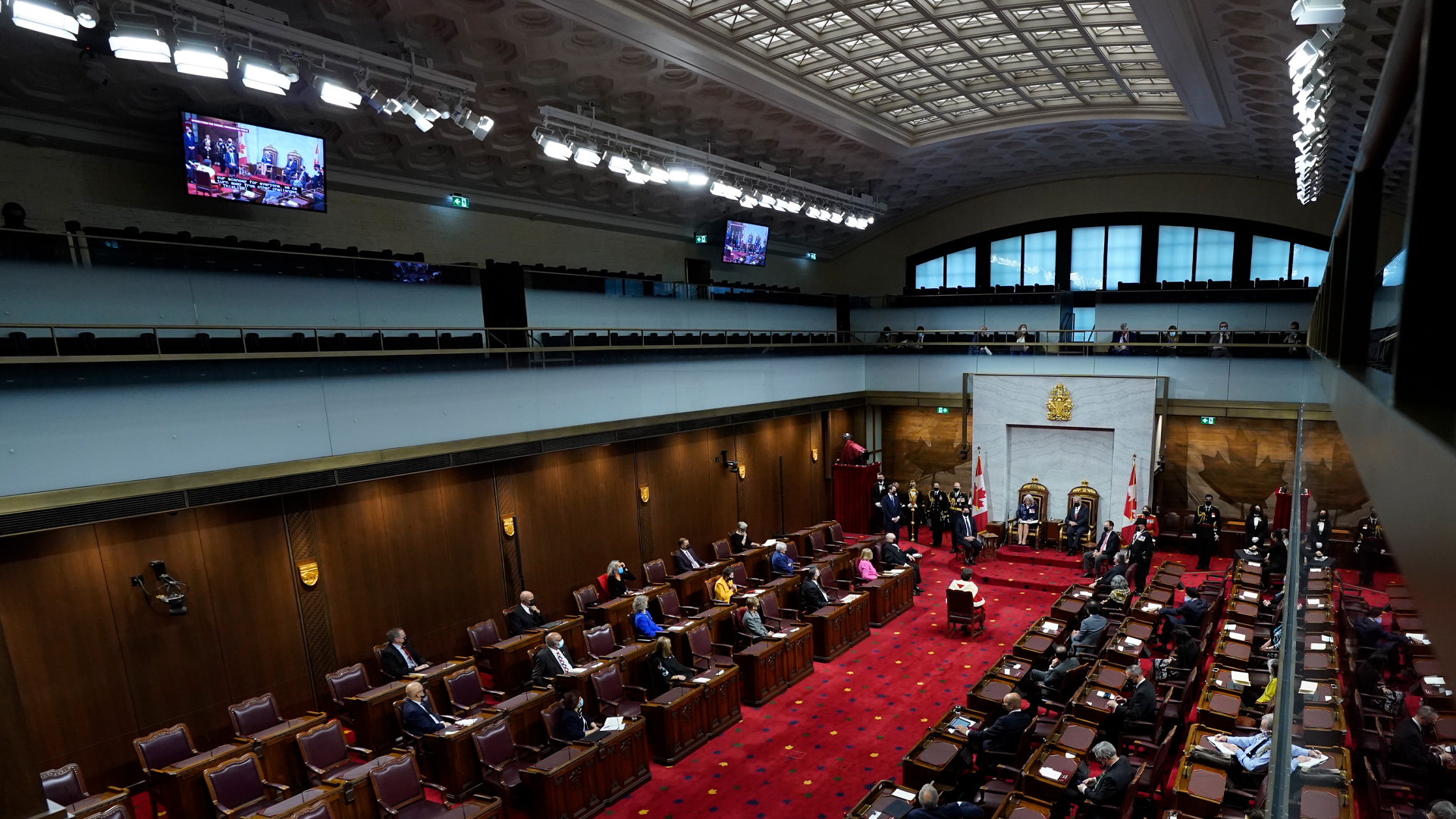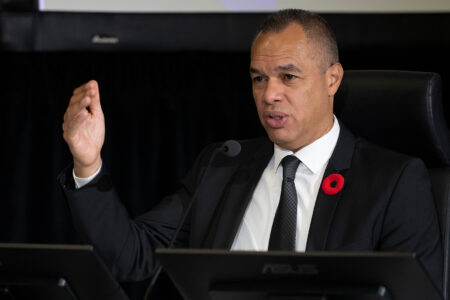
Since his appointment in 2016, Tony Dean has periodically reported on the shift to a more independent and less partisan Senate of Canada.
Initiating Senate reform was a surprising early step by Prime Minister Trudeau following his election in 2015. His announcement of a move to a more independent and less partisan Senate had many political observers scratching their heads because such appointments had previously been, at least in part, an opportunity to appoint party loyalists. At the same time, it infuriated some veteran Liberal senators, who would no longer be welcome in the PM’s parliamentary caucus.
At that time, few would have predicted the course of this initiative and how, or even if, it would get off the ground. The outcome was unpredictable because independent senators truly outside the boundaries of direct political control were likely to chart their own course – both individually and collectively. This is precisely what has happened and even more changes are afoot.
This is a good moment to look at how Senate reform is unfolding. The mandate of the Liberal government has been recently extended and we have a new parliamentary session, which we expect will bring a substantial legislative agenda. With a growing cohort of independent senators, it will be interesting to see how the Senate deals with some of the important issues of the day amid the pandemic and its many disruptions.
In 2015, there were a handful of senators sitting as independents. As we enter 2022, fully 80 per cent of senators are independent, having no affiliation with a political caucus in Parliament. There are currently 85 senators in four organized groups: The Independent Senators Group (ISG) has 42 members; the Progressive Senate Group (PSG) and the Canadian Senators Group (CSG) have 14 and 13 members respectively, and the Conservatives have 16 members. Other than the Speaker of the Senate and the three members of the Government Representative’s Office, two senators are not affiliated with any group, bringing the total number of senators to 91, with 14 vacancies awaiting new appointments. Notably, the Conservatives are the only group with formal ties to a House of Commons political caucus.
This shift away from a duopoly in the Senate is reflected in amendments to the Parliament of Canada Act, which is now before the House of Commons.
Former Conservative Senator Scott Tannas now leads the CSG, while the PSG is led by former Liberal Senator Jane Cordy. The ISG was formed with the first wave of independent appointments early in 2016. It had been led for the past four years by Yuen Pau Woo, an economist and former chair of the Asia-Pacific Foundation. Effective Jan. 1, Senator Raymonde Saint-Germain, a former deputy minister and ombudsperson in Quebec, assumed the leadership of the group, which has consistently focused on Senate reform.
Several waves of independent appointments by Trudeau have occurred since 2015, following recommendations from an independent appointment panel. The first in early 2016 included Murray Sinclair, Frances Lankin, Ratna Omidvar, Raymonde Gagné and Chantal Petitclerc. It became a magnet for further applicants and a signal that independence was being taken seriously. That trend has continued. The most recent appointments in the second half of 2021 included two former mayors, Karen Sorensen and Bernadette Clement; as well as Indigenous leader Michèle Audette; entrepreneur and business leader Amina Gerba; economist and former bank executive Clément Gignac; former president of the Saint John Port Authority, Jim Quinn; and the former president of the Canadian Labour Congress, Hassan Yussuff.
Independent senators appointed since 2016 have added to the considerable talent of those who preceded them. Canada’s senators have decades of experience in myriad fields, including medicine, law, human rights, science, social and economic policy, foreign policy, the arts, sports, business, banking, financial and energy regulation, the environment, and labour and employment policy.
As a result of Trudeau’s appointments, the Senate reached gender parity briefly in 2020 – it now stands at 45 women and 46 men. Indigenous senators make up 10 per cent of the Senate. Several senators recently launched the African Canadian Senate Group, a coalition of senators from the different groups, committed to fighting discrimination while giving African Canadians a voice in the Senate.
The presence of multiple groups — all having some degree of interest in seeing the institution work more effectively — has in many cases led to more dynamic and multi-faceted debates and less political posturing than under the us-versus-them dynamic of the former government/opposition duopoly. The debate last year on C-7, the medical assistance in dying bill, is a prime example of thoughtful and less partisan debate that led to significant changes in the bill, including the removal of the mental-health exclusion clause.
Some recent initiatives are beginning to pave the way for a more positive working environment for staff and better oversight and transparency in the Senate. Senators from all groups worked together to comprehensively address harassment in the workplace and online with a new and more rigorous workplace harassment policy, which has been well received by Senate staff. A new audit and oversight committee, which includes independent members who are not Senators, is now in place to identify potential financial and related risks, and to advise on how they can be addressed.
Going forward. there is also considerable interest in forming a business planning committee to bring a more systematic and predictable approach to scheduling debates. There is growing consensus that planning Senate business and scheduling debates on bills would ensure that bills receive an appropriate amount of scrutiny, preventing fast-track, “blank cheque” approvals on the one hand, as well as avoiding counterproductive, endless delays on the other.
The growing pains of an independent Senate
Why the Senate needs external oversight over expenses
Canadians not convinced current Senate has made a difference
Finally, there has been recent agreement on having key government ministers attending the Senate’s question period on a more regular basis, allowing senators to ask questions about initiatives and issues in a minister’s portfolio and to raise questions about government policies.
On the same note, the Senate Conservatives, led by Senator Don Plett, are now a smaller caucus but punch above their weight and maintain a robust role as the Official Opposition in holding the government to account.
Since 2015, the Senate has more frequently amended government bills, with many changes proposed by independent senators being endorsed by the government. From 2015-19, one-third of government bills were amended in the Senate. In each case the House of Commons accepted some, if not all, of the Senate’s amendments. In comparison, under the previous process for appointing senators, only one of 61 government bills was successfully amended by the Senate between 2013-15.
While the pace of reform often seems slow, the changes described here are the most significant in the history of the 154-year-old institution. Above all, the longstanding duopoly has faded, allowing senators to provide more robust sober second thought on government bills as well as on important public policies. This means that government bills receive a fresh and critical look in the Senate. as opposed to a replay of earlier debates in the House of Commons. It also means that senators have more freedom to advocate and legislate on behalf of their provinces and territories, as well as for minorities and vulnerable Canadians, which remains an important part of their responsibilities.
Most important of all is that these changes are to the benefit of Canadians, who are paying for all of this and who deserve more value from their parliamentary institutions.










